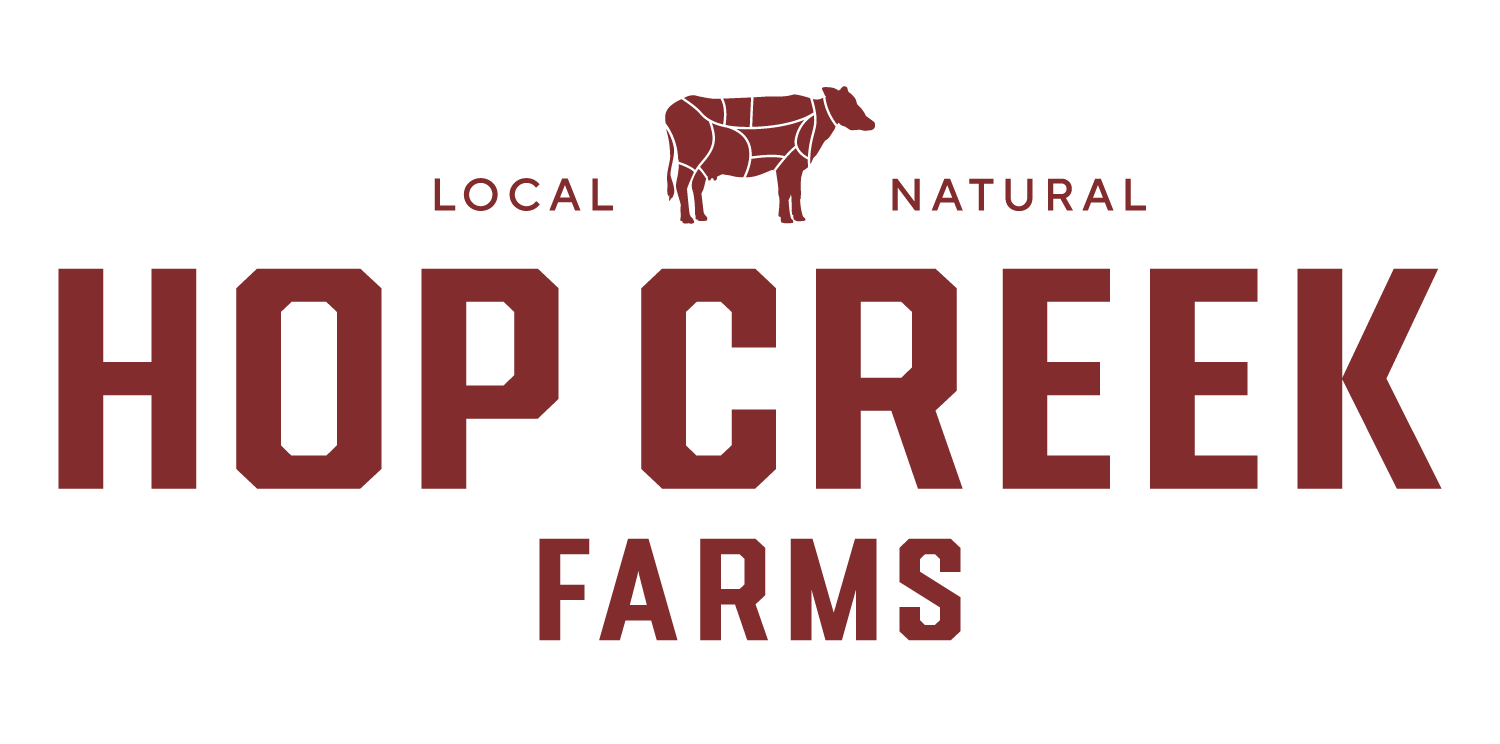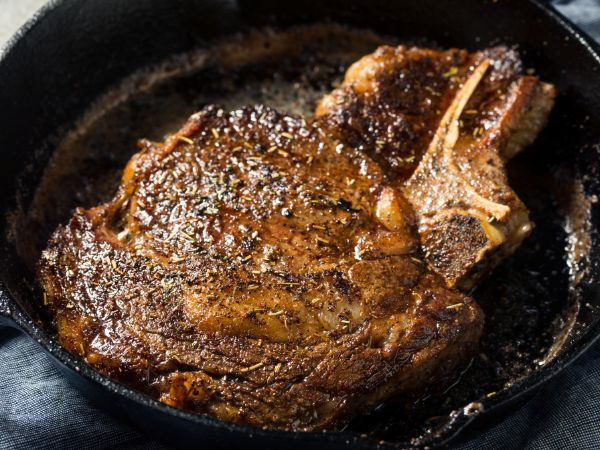Regenerative Agriculture at Hop Creek Farms
posted on
November 29, 2024

Regenerative Agriculture and Its Growing Importance.
As a local farm, we're dedicated to implementing regenerative agriculture practices that enhance soil health and improve the natural ecosystem. The farm prioritizes ecological balance and biodiversity, integrating methods that go beyond traditional farming. By using diverse crop production and minimizing chemical usage, we actively contribute to a more sustainable food system at Hop Creek Farms, ensuring that economic and ecological merits are protected. Our commitment to these natural agricultural principles helps support the farmers, the local community and sets a precedent for the global farming industry.
Understanding Regenerative Agriculture
Regenerative agriculture is an approach to farming that emphasizes restoring and enhancing the health of the ecosystem through sustainable, regenerative farming practices. Unlike conventional farming, which often relies heavily on chemical inputs and monoculture, regenerative agriculture seeks to work with natural processes. This method improves soil health, increases biodiversity, and enhances the resilience of farming operations by focusing on long-term ecological outcomes rather than short-term yields.
A fundamental principle of regenerative agriculture is preserving and enhancing soil health. Practices such as cover cropping, reduced tillage, and composting are employed to improve soil structure, increase organic matter, and promote beneficial microorganisms.
In terms of biodiversity, regenerative practices maximize crop diversity rotations and the integration of animals into farming systems to mimic natural ecosystems and create a balanced, resilient agricultural landscape.
Lastly, ecosystem restoration is a pivotal component, aiming to rehabilitate natural habitats and enhance ecosystem services that support the entire food value chain. By focusing on these core principles, regenerative agriculture seeks to create farming systems that are productive and environmentally and socially beneficial.
Raising Animals in a Regenerative System
At Hop Creek Farms, the emphasis on raising animals in a regenerative system revolves around encouraging natural behaviours and ensuring humane treatment. Animals are provided ample space to roam, graze, and engage in their instinctive activities, promoting their well-being and supporting the farm's ecological goals. This approach recognizes that happy, healthy animals are integral to a thriving and regenerative farm ecosystem.
One key aspect of this practice is rotating grazing areas. By routinely moving livestock to different pasture sections, the farm allows grazed areas time to recover. This rotation prevents overgrazing, leading to healthier soils that retain water and nutrients better. As a result, the soil's structure improves, creating a thriving environment for microorganisms essential for nutrient cycling.
Incorporating mixed-species pastures further enhances these benefits. By grazing different species of animals together, Hop Creek Farms maximizes the use of available resources and promotes pasture diversity. Different animals prefer different plants, contributing to a more balanced and vigorous pasture ecosystem. This diversity improves soil fertility and bolsters the animals' health and resilience by providing a wider range of nutrients and reducing the prevalence of pests and diseases. Through these thoughtful practices, the farm creates a sustainable loop where both the land and the animals are cared for.
Practices at Hop Creek Farms
At Hop Creek Farms, several thoughtful practices are implemented to support regenerative agriculture. One such practice is cover cropping, which involves planting specific crops during the off-season when traditional cash crops aren't grown. These cover crops, like clover and rye, protect the soil from erosion, improve its structure, and enhance nutrient content by adding organic matter when they decompose. This method also provides a habitat for beneficial insects, aiding in natural pest control.
In addition to cover cropping, the farm employs no-till farming techniques to further enhance soil health. By avoiding traditional plowing, no-till farming minimizes soil disruption, preserving its natural structure and moisture levels. This approach also helps maintain vital microorganisms within the soil, which promotes nutrient cycling and plant growth.
Water management and conservation are crucial elements of Hop Creek Farms' practices. The farm utilizes efficient irrigation systems like drip irrigation, which delivers water directly to plant roots, reducing evaporation and water waste. Additionally, the use of mulch in fields helps retain soil moisture and keeps the soil cooler, further conserving water resources.
Hop Creek Farms practices integrated pest management (IPM) to manage pests naturally and reduce chemical use. This strategy involves several methods, such as introducing beneficial insects that prey on harmful pests, rotating crops to disrupt pest life cycles, and employing natural predators and barriers. These techniques help maintain a healthy and balanced ecosystem, limiting the need for chemical pesticides and promoting a safer environment for crops, animals, and people.
Benefits to the Environment and Animal Welfare
Hop Creek Farms has observed significant improvements in soil structure and organic matter due to its regenerative practices. By engaging in cover cropping and no-till farming, the farm enhances the soil’s ability to retain nutrients and moisture, resulting in a more robust and resilient soil ecosystem. This healthier soil can better support plant growth and withstand weather changes, leading to more sustainable agricultural productivity.
Our commitment to increasing plant and animal diversity contributes positively to the environment. Diverse crop rotations and mixed-species grazing enhance the variety of life within the farm, creating a balanced ecosystem. This diversity boosts the farm's resilience to pests and diseases and ensures a richer nutrient cycle.
These practices play a crucial role in carbon sequestration and reducing emissions. Healthy, rich soils are more effective at capturing and storing carbon from the atmosphere, thus mitigating the effects of climate change. Furthermore, reducing soil disturbance and maintaining a diverse ecosystem decreases the farm's reliance on synthetic fertilizers and pesticides, which are significant sources of greenhouse gas emissions. Hop Creek Farms actively contributes to environmental conservation and a healthier planet by prioritizing these sustainable practices.
Hop Creek Farms and Regenerative Agriculture Canada
Supporting current farming practices at Hop Creek Farms means contributing to a more sustainable and environmentally friendly future. By embracing regenerative agriculture, you’re investing in practices that enrich the soil, improve biodiversity, and capture carbon, all of which help mitigate climate change. We encourage you to consider the long-term benefits of supporting farms like Hop Creek. These farms provide healthier, often more nutritious produce and prioritize animal welfare and environmental stewardship. Your support can make a real difference in creating a thriving ecosystem for future generations.
Shop today for grass-fed beef, lamb, pastured pork, and chicken.







